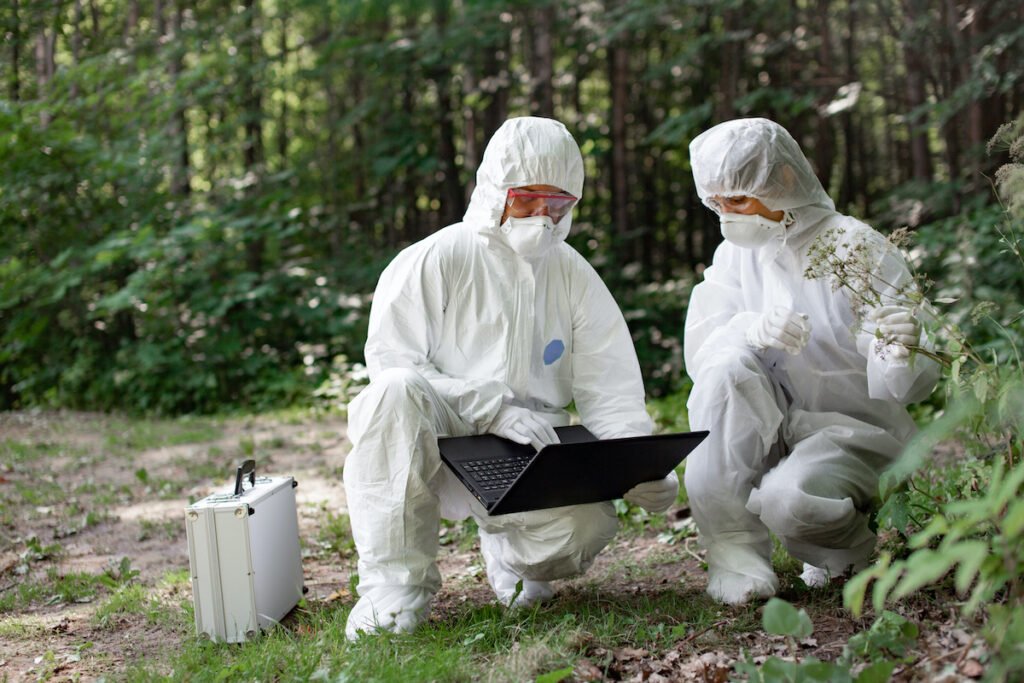Striving for One Health resilience

Paris, 25 May 2021 – This past year has taught us many global health lessons. None more important than the necessity of building health system resilience, at both the national and international level, to safeguard against the devastating effects of pandemics. The concept of resilience has evolved over time, however it is generally accepted as the ability to flexibly prepare for, adapt and recover from adverse events. The COVID-19 pandemic has been a major test of global resilience, and has encouraged the international community, including the World Organisation for Animal Health (OIE), to review its global response to the pandemic and assess how to best incorporate the hard lessons learned into a more sustainable and healthier future.
Building One Health resilience strategies
The OIE looks through a One Health lens, recognising that the health of humans, animals and the environment is interconnected, and interdependent. The COVID-19 pandemic itself demonstrated this interconnectivity, as it is likely that the SARS-CoV-2 virus originated in animals. Over the past few years, and spurred on by the pandemic, the OIE has assessed the critical vulnerabilities of One Health resilience through its major activities, including through Member assessments as a part of the Performance of Veterinary Services (PVS) programme, data from the World Animal Health Information System (OIE-WAHIS), as well as through surveys and questionnaires completed by Members and partners. This wealth of information has led to some preliminary conclusions can no longer be ignored if the international community aims for better preparedness against a future pandemic. Already taking action, the OIE developed its annual technical item and subsequent Resolution No. 31 for the 88th General Session, aiming to improve One Health resilience at the global level and for its Members.
The OIE has identified three critical vulnerabilities to One Health resilience that need to be addressed by both the organisation and its Members. The first vulnerability is a lack of attention to wildlife health management, and its inadequate integration into animal health and One Health strategies at all levels. This affects a country’s ability to manage emerging disease threats and to protect biodiversity. The second vulnerability is a lack of global capacity to manage disease emergencies including weaknesses in country capacity to put emergency management plans into operation (leading to a lack of preparedness). A third vulnerability is the chronic, systemic weaknesses in the sustainability of diagnostic laboratory systems. Transversely, One Health resilience is further weakened by deficiencies in the ability of Veterinary Services to access resources and to apply a truly multisectoral approach.
The OIE’s annual technical item, as an important part of its 88th General Session, also investigates the Organisation’s response to the COVID-19 pandemic and these vulnerabilities, presenting the OIE World Assembly of Delegates with resolutions that could address some of these weaknesses and make our health systems stronger.
Expanding the OIE’s role in wildlife health management
To better understand the challenges facing wildlife health management, the OIE surveyed Members’ Veterinary Authorities on the role of Veterinary Services (VS) in wildlife management. The survey delved into specific issues, such as the surveillance of disease in wildlife, and the health monitoring of wildlife in the context of wildlife trade, at all levels of the supply chain. Eighty-one percent of respondents1 said that their VS were involved in wildlife health management, mainly in the monitoring of the trade value chain: of import/export activities, the inspection of wildlife products and by-products, and the transportation of wildlife. However, only 15% of these respondents said that they collaborated with conservation organisations, charities, non-governmental organisations and/or other government departments focused on wildlife. This lack of One Health coordination between the VS and wildlife authorities is only one of the difficulties faced by the VS in implementing an appropriate system for health monitoring of wildlife trade and use.
Establishing relevant and appropriate legislative or regulatory frameworks for health monitoring of wildlife trade is a significant concern for the VS. In response the OIE launched its Wildlife Health Framework in 2021, aiming to improve the ability of OIE Members to manage the risk of pathogen emergence in wildlife and transmission at the human−animal−ecosystem interface, while taking into account the protection of wildlife and biodiversity. Furthermore, it aims to support OIE Members to improve their surveillance systems, and their early detection, notification and management of wildlife diseases, including by boosting the use of OIE-WAHIS. The framework will integrate wildlife health across the OIE’s core programmes and activities.
Better emergency management is essential for future pandemics
Emergency management is also a key aspect of national resilience, ensuring that a country is well-prepared to act quickly when a new disease threat emerges. While it is encouraging that 90% of OIE Members have some sort of national contingency plan, almost half of the 125 OIE Members assessed by the OIE PVS Evaluation Tool had inadequate or no resources to respond to an emergency. A plan must be ‘fit for purpose’ by being based on local risk, accompanied by adequate resources (including trained personnel, equipment, and finances) and regularly assessed through simulation exercises. VS and animal health are not adequately represented in government frameworks and national emergency management plans, indicating major vulnerabilities for a future pandemic scenario. More work is needed to advocate for this, and to provide more support from a greater number of stakeholders for animal health emergencies, mobilise resources, and allow Veterinary Services to contribute their expertise to national emergencies. The OIE is in the process of building an evidence base for its emergency management programme which will be used to develop fit-for-purpose guidance, upgrade capacity-building tools more effectively, and share models and best practices to support OIE Members in improving sustainability of their emergency management systems.

Improving the sustainability of laboratories
The third One Health resilience vulnerability identified by the OIE was the sustainability of laboratories, a vital feature for fighting a disease threat. The pandemic has highlighted the importance of diagnostics − often housed in or coordinated from laboratories − in identifying and characterising new and emerging pathogens and detecting outbreaks early to facilitate containment and avoid further spread. Well-designed systems which link surveillance, laboratory systems and effective disease intervention strategies can maintain or improve levels of performance of VS over time. Such systems should be sustainable to ensure these benefits are maintained. However, a 2019 survey of 136 participating Members showed that of the more than 68,000 pieces of equipment reported globally, approximately 22% were not properly maintained and 46% were not properly calibrated, with variations between OIE regions. The OIE is active in seeking targeted solutions and is also refining its own laboratory capacity-building tools to ensure that sustainability is integrated as a core component.

Examining these One Health resilience vulnerabilities has been crucial for the OIE. It has encouraged the organisation to reflect on its role and its ability to support the VS in their mission to protect animal health, and plan a proactive response in close partnership with its Members. Resolution No. 31 calls on its Members to join the OIE in committing themselves to building systems that can not only protect future, but build a more sustainable, healthier world for both humans and animals.
1 The survey received 151 responses from Members.

